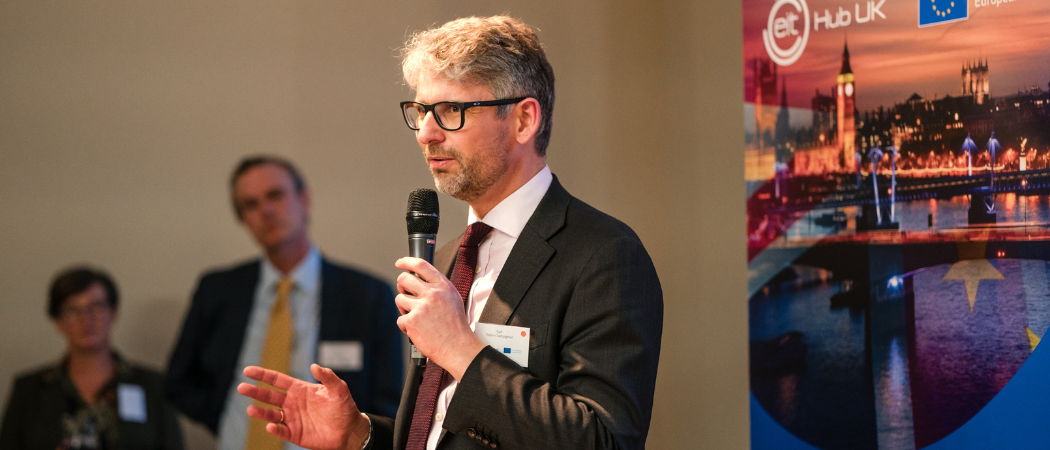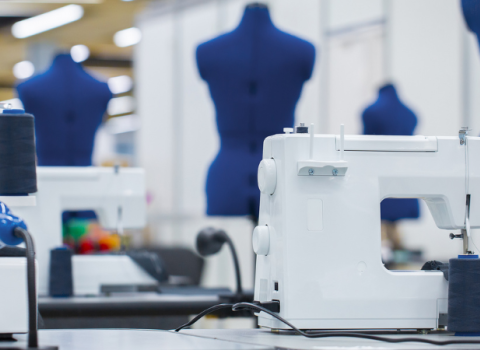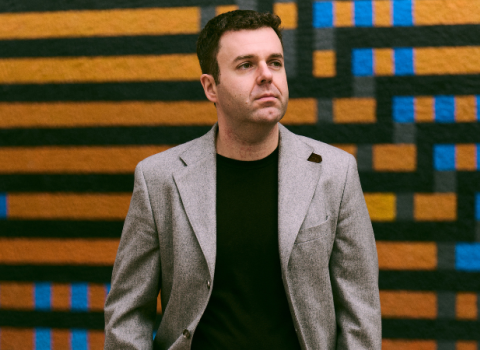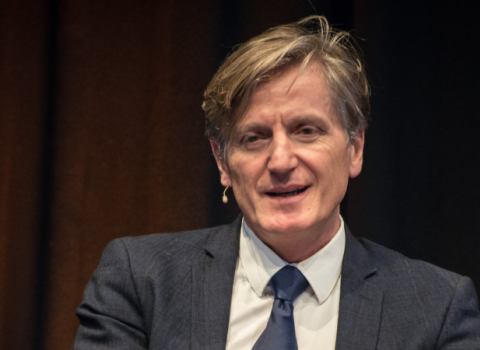As a hub set up by the European Institute of Innovation and Technology to build UK participation in Horizon Europe opens its doors, the UK joins the EU semiconductor partnership

Cyril Robin-Champigneul, EU science and research counsellor to the UK. Photo credit: Kari Bellamy
A new milestone in the revival of EU-UK science relations has been reached with the launch of EIT Hub UK by the European Institute of Innovation and Technology (EIT), following the UK’s association to Horizon Europe at the beginning of 2024.
In its first year, the hub will focus on reconnecting, building trust, and “re-educating the market on working again in Horizon Europe, and being able to plug into consortia and calls,” said Adi Barel, managing director of EIT’s global outreach programme.
“EIT is one of the first EU innovation organisations coming back to the UK to build this connection and this trust, aiming for tangible results of commercial collaboration around different calls and initiatives,” she told Science|Business.
London becomes the third location to host an EIT hub after Tel Aviv and Silicon Valley. The move, “shows how important the UK is for the EU as a science and innovation partner,” Cyril Robin-Champigneul, EU science and research counsellor to the UK, told Science|Business.
The hub is “a visible and very significant sign of how far we’ve come politically in our relationship with the UK […] and one of the most visible first steps of the UK’s association to Horizon Europe,” he said.
There will be a particular focus on engaging with start-ups and scale-ups. “The creation of the EIT hub responds to the huge priority both the UK government and the European Commission […] are giving to business participation in [Horizon Europe],” said Robin-Champigneul.
EIT brings together organisations working in education, research and innovation around nine knowledge and innovation communities (KICs), and in addition to its symbolism, the London hub will provide support to potential UK partners in preparing proposals, and participating in the KICs.
In addition to getting involved in the KICs, the London hub also aims to promote the participation in other parts of Horizon Europe, including the European Innovation Council, industrial partnerships, and the EU Missions.
The goal is “to bridge between the European ecosystem around our challenges, the KICs, and global strategic ecosystems, understanding these challenges cannot be solved in one country or area,” Barel said. In London for the launch of the EIT hub on Tuesday, she said there is a “very big appetite from both sides” for collaboration.
The hub will also be a focal point for academics, Caroline Viarouge, CEO of the EIT Manufacturing KIC, said at the launch. “We work with various universities across Europe and we want to open that up to the UK,” she said.
Following UK association to Horizon Europe, research commissioner Iliana Ivanova and UK science minister Michelle Donelan have been trying to raise awareness and encourage researchers in the UK to re-engage in the EU research programme.
“With UK association to Horizon Europe, we opened up a range of new opportunities for both sides. The new EIT hub will bring together innovators from the EU and the UK to work together on solutions to our common challenges,” Ivanova said.
Chips partnership
In another sign of how the research relationship is being rebuilt after the schism of Brexit, the UK has joined the Chips joint undertaking, the Horizon Europe industrial partnership in semiconductor research.
The UK Department for Science, Innovation and Technology will contribute £5 million this year, and £30 million from 2025 and 2027, to fund UK participation.
The UK has joined as a participating state, meaning it will have a role in setting research priorities and funding decisions for the joint undertaking.
“Our membership of the Chips joint undertaking will boost Britain’s strengths in semiconductor science and research to secure our position in the global chip supply chain,” said Saqib Bhatti, minister of technology.
Sean Redmond, managing partner at the start-up incubator Silicon Catalyst welcomed the move. "UK semiconductor start-ups have a rich history of collaboration with the EU. Our semiconductor research base is the fourth largest in the world,” he said. “Commercialising these inventions with the help of the EU Chips Joint Undertaking will significantly increase their probability of success, mitigating risks by local collaborations that provide a clear path from lab to fab.”
“We are looking forward to working with the UK partners to develop the European industrial ecosystem in microelectronics and its applications,” said Jari Kinaret, executive director of the Chips JU.
The UK semiconductor sector will now have enhanced access to €1.3 billion of Horizon Europe funding up to 2027.





 A unique international forum for public research organisations and companies to connect their external engagement with strategic interests around their R&D system.
A unique international forum for public research organisations and companies to connect their external engagement with strategic interests around their R&D system.